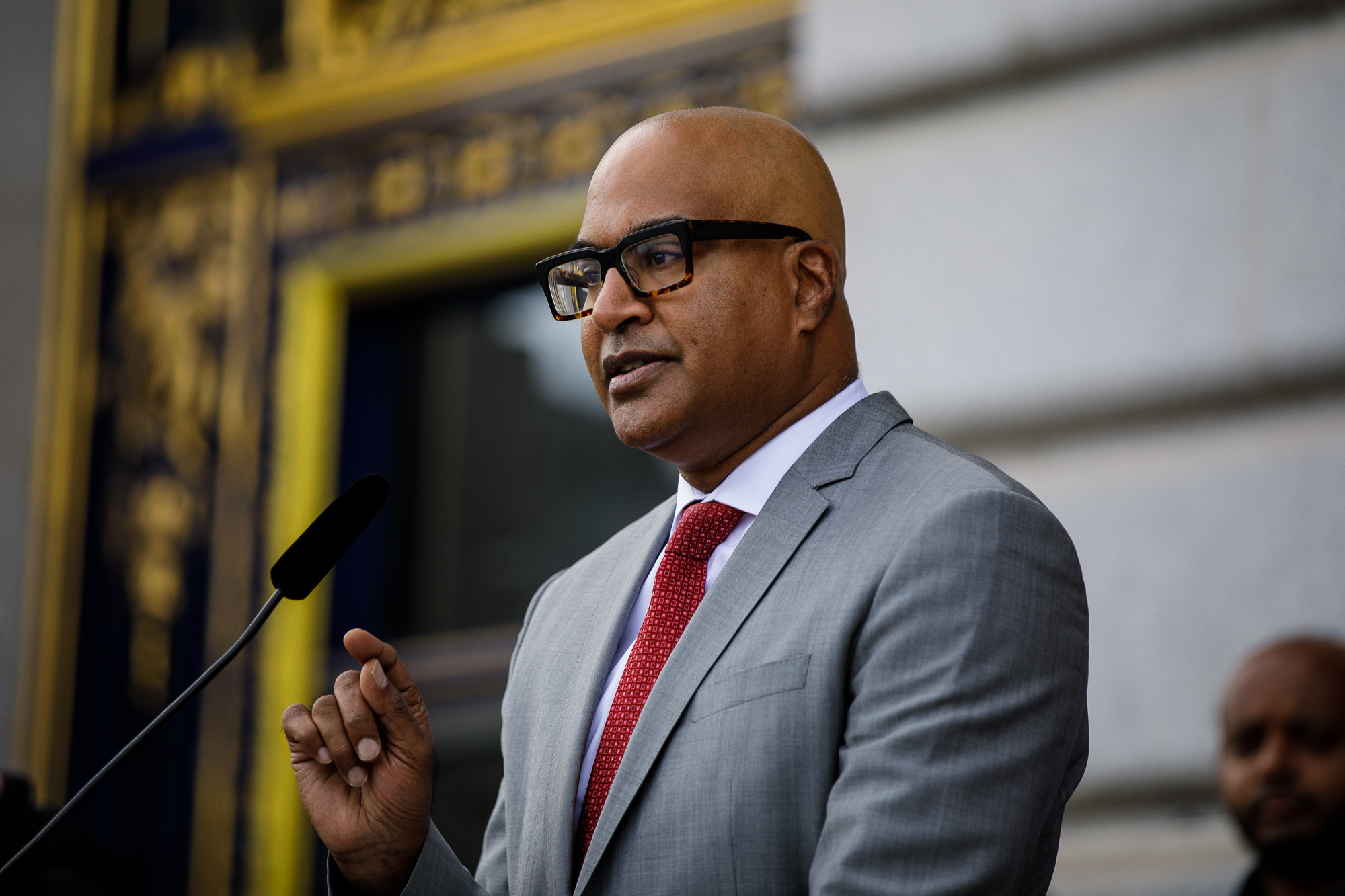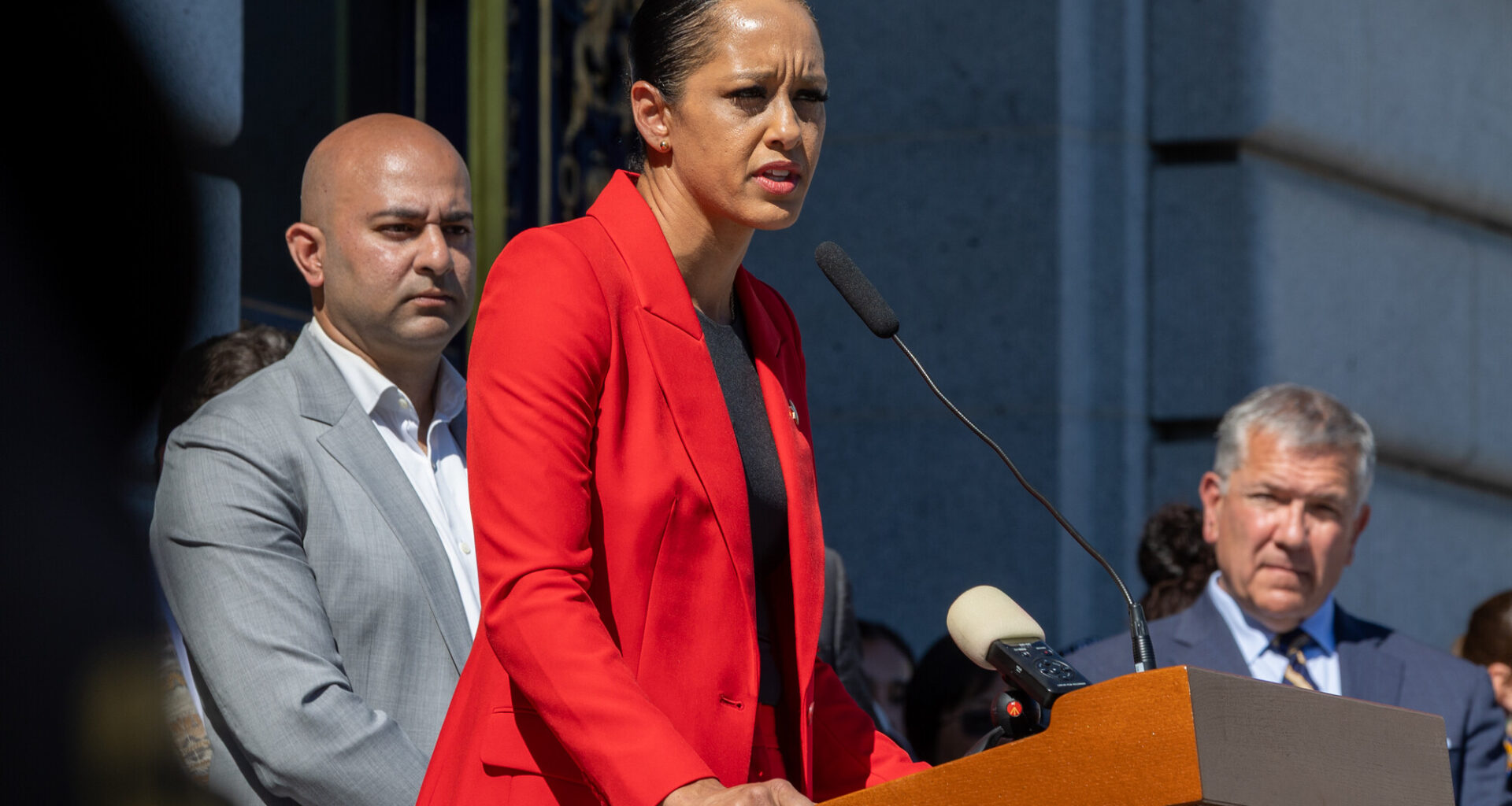Jenkins also accused the public defender’s office of mismanagement, such as double-staffing felony cases and intentionally avoiding plea deals to force misdemeanor cases to trial.
San Francisco Public Defender Mano Raju rejected those accusations, noting that his office has consistently advocated for more resources over the years. He added that while he double-staffs certain felony cases, each lawyer still has numerous cases at any given time.
“It is my ethical and legal mandate to represent our clients in an effective way, and our defenders understand what that means,” Raju said. “We’ve had several attorneys who had to go out on some form of stress leave or medical issues … To have a caseload where several of your clients are looking at decades in prison or life sentences at one time is extremely, extremely difficult work.”
Raju said he’s optimistic that the Mayor’s office and Board of Supervisors will help create more parity between the two offices’ budgets — the District Attorney’s office receives more than $30,000,000 more.
“The district attorney’s office has sole discretion over what cases to file, and there’s been a nearly 60% increase in filing since 2021,” Raju said, “and that had some predictable results, filling our jails to over capacity and increasing our case loads to a breaking point.”
 San Francisco Public Defender Mano Raju speaks at a rally protesting Mayor Daniel Lurie’s attempt to remove Carter-Oberstone from the Police Commission on the steps of San Francisco City Hall, on Feb. 24, 2025. (Martin do Nascimento/KQED)
San Francisco Public Defender Mano Raju speaks at a rally protesting Mayor Daniel Lurie’s attempt to remove Carter-Oberstone from the Police Commission on the steps of San Francisco City Hall, on Feb. 24, 2025. (Martin do Nascimento/KQED)
Raju pointed to a first-of-its-kind comprehensive national study on appropriate case workload for public defenders, which his office’s internal analysis used to determine that it needs 26 more attorneys. He said the office is now unavailable two days a week for misdemeanor cases, something that it’s regularly evaluating and may dial down.
“I’m hoping that the courts are not intimidated by these tactics,” said Raju, in reference to Jenkins’ comments.
The district attorney was reported to the State Bar by a former Superior Court Judge in April for alleged incendiary attacks against judges over their decisions.
“But what I’m concerned about,” Raju continued, “is being able to represent my clients in a constitutionally mandated way.”
Robert Weisberg, co-director of the Stanford Criminal Justice Center, said the public defender’s office’s move is not uncommon when understaffed, and a similar thing happened during the tenure of a previous public defender, Jeff Adachi.
“An important thing is that it’s not just a question of the right to counsel [at] a trial, it’s the right to effective counsel under the Constitution,” Weisberg said.
He said the issue is often settled in some way, though the Court has the option to hold Raju’s office in contempt.

